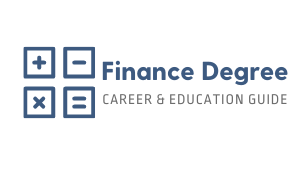Why Major in Finance in 2025?
Strategic Investment in Your Future
Majoring in finance is more than just an academic decision; it’s a strategic investment in your future. Finance graduates are equipped to guide organizations through financial challenges, offering vital insights into future planning and strategic decision-making. According to Bureau of Labor Statistics, the median annual salary for financial analysts was $95,570 in 2022, with a projected growth rate of 6% through 2031, faster than the average for all occupations.
The Modern Finance Curriculum
The modern finance curriculum is designed with real-world application in mind. It blends theoretical foundations with hands-on, practical learning. Topics include financial markets, risk management, advanced financial technologies, and dynamic problem-solving. Students also learn to leverage modern financial software, preparing them for roles in a tech-driven financial landscape. According to industry leaders, this training is crucial for adapting to the ongoing technological changes shaping the finance industry.
Opportunities Amidst Economic Shifts
The Bureau of Labor Statistics projects significant growth in finance-related careers. With roles such as financial analysts, personal financial advisors, and risk managers growing at faster-than-average rates, finance graduates are poised to capitalize on emerging opportunities. Personal financial advisors, for example, earned a median salary of $94,170 in 2022, and the field is expected to grow 15% by 2031.
Finance professionals also exhibit strong resilience and adaptability, traits essential in times of economic volatility. Earning a degree in finance equips you with the ability to not only anticipate economic changes but to develop strategies that navigate through uncertainties, providing stability for businesses and individuals alike.
Diverse Career Trajectories
A finance degree opens doors to diverse and versatile career paths. From corporate finance to sustainable finance initiatives, the possibilities are vast. The financial sector offers roles that include financial analyst, risk manager, investment banker, and more. Each of these roles carries high earning potential and the opportunity for rapid advancement.
Career Paths with a Finance Degree
- Financial Analyst: Analyze data, create financial models, and provide recommendations that help businesses make informed investment decisions. This role can evolve into positions like portfolio manager or director of finance.
- Personal Financial Advisor: Work with individuals to manage their finances, plan for retirement, and make smart investment decisions. Certifications like CFP® (Certified Financial Planner) are often pursued in this career.
- Investment Banker: Facilitate large financial transactions like mergers and acquisitions, public offerings, and venture capital financing. The role is lucrative but demanding, with fast career progression.
- Portfolio Manager: Make investment decisions on behalf of clients, managing portfolios of stocks, bonds, or other assets. Career growth can lead to managing larger funds or establishing your own firm.
- Corporate Finance: Manage a company’s finances, budgeting, and financial planning. Career paths include roles like financial manager or Chief Financial Officer (CFO).
The Human Element in Finance
Beyond numbers, finance professionals must excel in essential soft skills. These include critical thinking, effective communication, and adaptability. In today’s interconnected global market, the ability to collaborate with diverse teams and articulate complex ideas to non-financial stakeholders is crucial. Ethical decision-making is also becoming more important, with modern finance professionals expected to contribute to sustainable financial practices and corporate social responsibility.
Essential Soft Skills
- Effective Communication: Clearly explain financial concepts to clients or colleagues without financial backgrounds.
- Critical Thinking: Analyze complex financial data and make sound investment decisions while solving problems creatively.
- Adaptability: Stay flexible in a rapidly changing global economy and regulatory landscape.
- Ethical Decision-Making: Maintain trust and integrity by ensuring all financial activities comply with legal standards and ethical principles.
Networking and Continuous Learning
In finance, continuous learning and professional development are critical to career success. Networking, through conferences, professional organizations, or platforms like LinkedIn, helps you stay connected to industry trends and opportunities. Finance professionals also benefit from ongoing education, whether through certifications like the CFA® (Chartered Financial Analyst) or courses from platforms such as Coursera or edX.
Resources for Continuous Learning
- Coursera: Access a variety of finance courses from top universities and companies.
- edX: Offers finance programs and courses from institutions like MIT and Harvard.
- CFA Institute: Provides certifications and resources for advancing your finance career.
- Financial Times: A leading source for global financial news and analysis.
- The Economist: Provides insights into economic trends and financial markets.
Explore Your Path with Confidence
Combining practical experience through internships with academic learning provides the ultimate foundation for a successful career in finance. By gaining hands-on experience, you not only reinforce your knowledge but also build essential industry connections. Begin by exploring institutions offering finance programs and reaching out directly for more information on admissions.



